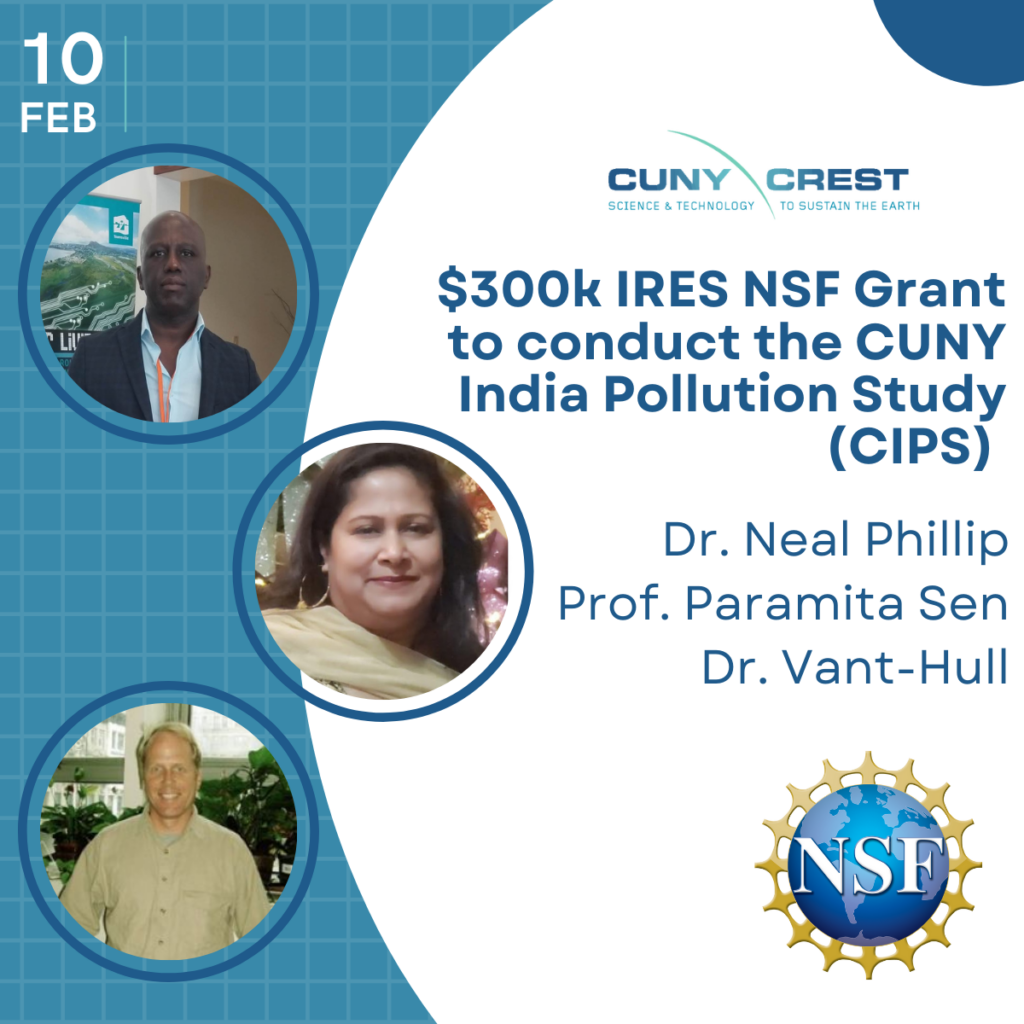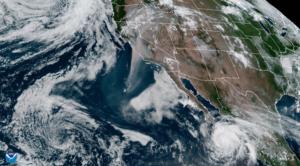$300k IRES NSF Grant to conduct the CUNY India Pollution Study (CIPS)
Professors Neal Phillip, Brian Vant-Hull and Paramita Sen were recently awarded the International Research Experience for Students (IRES) National Science Foundation (NSF) grant to conduct research focused on urban pollution in various neighborhoods of Mumbai, and New Delhi, India. One of the neighborhoods featured in the study will include Dharavi, the largest slum in Asia.
The IRES program creates opportunities for U.S. undergraduate and/or graduate science and engineering students participating in conducting international research, education, and professional development experiences in NSF- funded research areas. The project proposed by Dr. Phillip, Dr. Vant-Hull, and Prof. Sen falls under the Track 1 division of the IRES NSF grant, which focuses on the development of research skills in international cohort experiences.
Dr. Phillip, Professor and Chairperson of the Department of Chemistry, Earth Sciences, and Environmental Sciences at Bronx Community College (BCC), will serve as the lead PI for the CUNY India Pollution Study (CIPS). Dr. Vant-Hull and Prof. Sen will serve as co-PIs. Dr. Vant-Hull is a research scientist for NOAA Center for Earth System Sciences and Remote Sensing Technologies (NOAA-CESSRST) and CUNY Remote Sensing Earth System Institute (CUNY-CREST) and Prof. Sen is a lecturer in the Department of Chemistry, Earth Sciences, and Environmental Sciences at Bronx Community College (BCC). Dr. Phillip and Dr. Vant-Hull are affiliate scientists with the CUNY CREST Institute.
The international research study program, CIPS, plans on recruiting students from Bronx Community College, the City College of New York (CCNY), and other City University of New York (CUNY) colleges to collect and analyze microscale (neighborhood- and block-level) data regarding pollution levels using fixed and mobile sensing equipment throughout Mumbai, India. The students will be working virtually with Indian faculty and will travel to India for four weeks to monitor pollution and to visit New Delhi to compare pollution findings. The data will be used for research and instruction at CUNY and partnering Indian institutions, including the India Institute of Technology Bombay (IITB) and the Indian Institute of Technology Delhi (IITD). The project encourages underrepresented students by developing their research skills through collaborative international studies to support their retention, college graduation, and persistence in STEM studies. Undergraduate and graduate students from IITB and IITD will also be involved in the research activities. There is a focus on taking fixed and mobile air pollution measurements at the micro-scale level, matching demographic data to pollution measures, and collecting climate data, alongside with pollution data, at a microscale level in urban areas in India. An assessment of pollution exposure of marginalized populations can be determined by matching demographic data to pollution observed.
The CIPS project follows up from the CUNY India Study Abroad Program co-led by Professors Phillip and Sen that took fifteen CUNY students to conduct sustainability activities in Maharashtra, India in 2019, including the installation of a solar powered automatic weather station that captures monsoon conditions on the leeward side of the Western Ghats:


